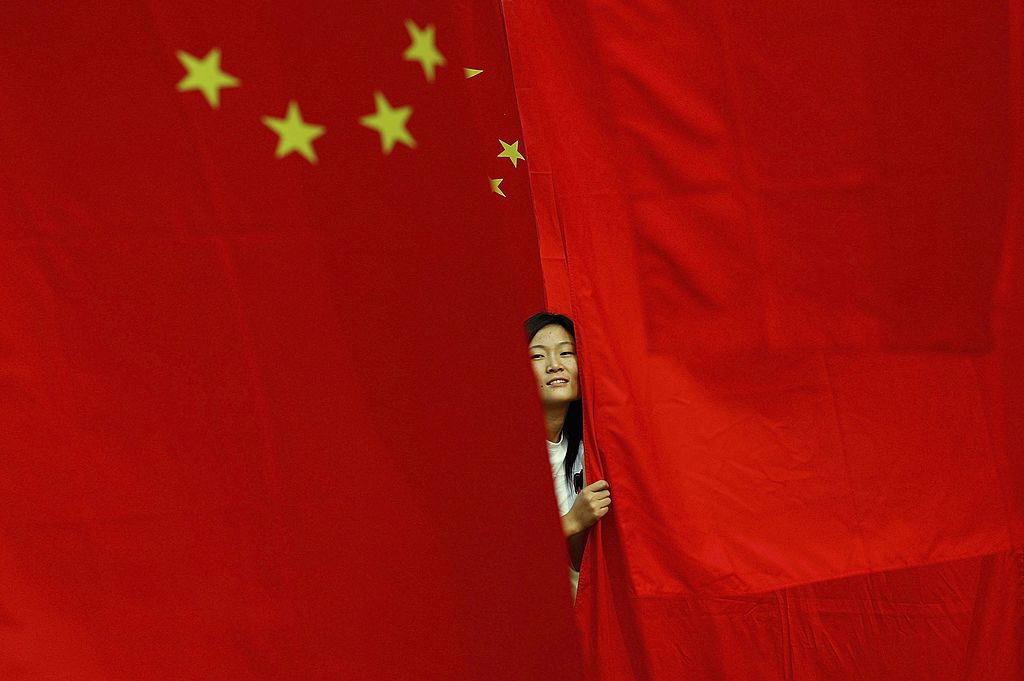 This article is part of ASPI’s 2020 series on women, peace and security.
This article is part of ASPI’s 2020 series on women, peace and security.
The Chinese government may have put up a
facade of progress by signing international declarations and passing
new laws, but the state of women’s rights in the People’s Republic of China remains unacceptable.
The latest unanimous
resolution on women, peace and security adopted by the UN Security Council in October last year encourages member states to enable women ‘who protect and defend human rights’ to act in safe environments. This formulation of language was a compromise in the final draft, due to
opposition from China and Russia to including a reference to ‘women human rights defenders’. Nonetheless, China reserved its position on the final paragraph.
The reason behind these tensions is clear. Women activists and human rights defenders have no freedom of action in China.
It was on 7 March 2015 that the face of Chinese feminism changed forever. That day, a group of feminist activists, later known as the Feminist Five, were
arrested for demonstrating against sexual harassment.
Li Maizi, Wang Man, Wei Tingting, Wu Rongrong and Zheng Churan had been involved in women’s rights organisations for years and did not expect to be arrested, because the Chinese Communist Party claimed to be addressing the issues the women sought to highlight, which were not seen as politically sensitive.
Their plan was to hand out stickers on public transport in different cities on International Women’s Day. But authorities acted in advance, taking the five to a detention centre in Beijing the day before their demonstration.
The arrests attracted
international attention both within and outside of the feminist community, and the ensuing backlash on social media is thought to have been what forced authorities to release the activists after 37 days of detention.
This happened 20 years after the UN’s
Fourth World Conference on Women, held in 1995 in Beijing. On that occasion, 189 countries signed the
Beijing Declaration and Platform for Action, pledging to fight for gender equality and to empower women by tackling poverty and violence and improving health and education outcomes.
It’s bitterly ironic that the country in which the international community passed such a fundamental milestone for global women’s rights has taken a drastic turn on the issue by cracking down on social movements and non-government organisations under the leadership of President Xi Jinping.
The CCP has since been undercutting any efforts by the Feminist Five and other activists to create safe spaces for women and raise issues of gender discrimination and domestic violence.
Despite the initial movement inspired by the five, feminist action in China has become unsustainable for many. One prominent example is the
arrest in October of #MeToo activist Sophia Huang Xueqin, who had expressed her support for the Hong Kong protests.
But the Chinese feminist fight is far from over. Some activists have moved overseas in order to continue their work. This new, confrontational phase of the movement puts them at odds with the CCP, especially as restrictions imposed by the Great Firewall become harder to work around. The five, together with many other courageous women, keep working for their people, and ultimately their country, to protect the most vulnerable and address deep societal issues.
‘Women hold up half the sky’, proclaimed Mao Zedong. But in 2020, Chinese women are being repressed and subjugated. They lack political representation and live in a patriarchal society that emphasises traditional, Confucian values.
This tendency harshly diminishes women’s public role, reducing them to instruments to be exploited for the benefit of the CCP and China’s economic prosperity.
The regime’s one-child policy, for example, has had far-reaching effects on women. Until it was withdrawn in 2015, the policy allowed for destructive practices that annihilated women’s freedom. The current push is for women to have more children in order to rebalance China’s ageing population. While their role as primary carers for elders and children remains, women are expected to study, work, pursue a career, get married and abide by unrealistic beauty standards. These expectations come while women are still subject to gender discrimination and abuse at home, on the streets, online and in the workplace.
The government is repressing activists because a broad feminist uprising would be a powerful voice against the CCP. By refusing to abide by traditional gender norms, women could threaten the stability of the authoritarian state, which relies on a patriarchal and deferential system.
As Chinese American author and activist Leta Hong Fincher
wrote in a series of pieces, the Feminist Five had unique potential and gave life to a grassroots mobilisation not seen since the 1989 pro-democracy movement.
Countries that support gender equality, including Australia, should speak out on attacks against the defenders of human rights. If we all agree that women’s rights are human rights, something UN Secretary-General António Guterres has
stressed, then when discussing the abuses taking place in China we must include women’s rights among those concerns.
 Print This Post
Print This Post